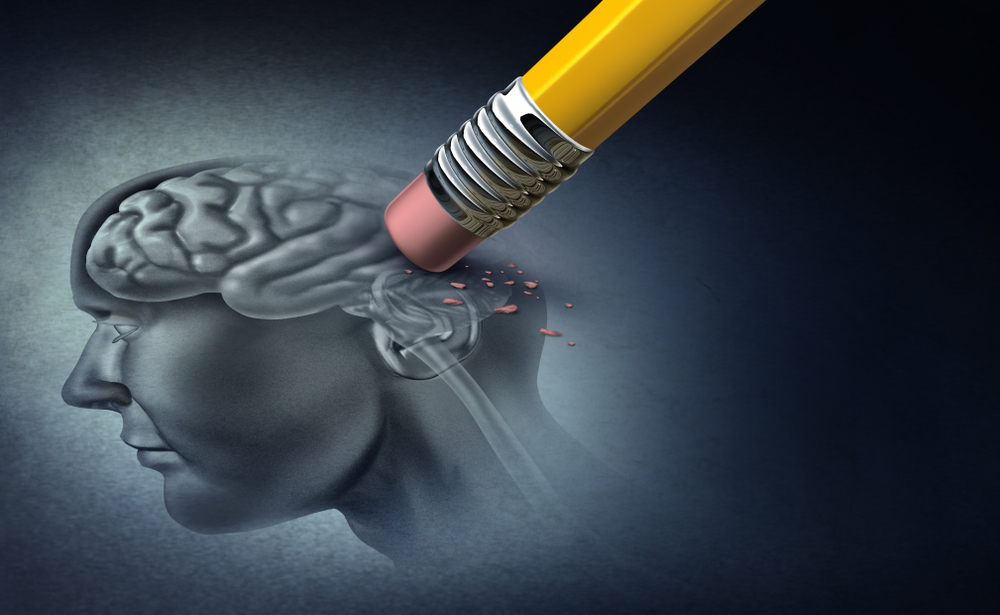We know that Alzheimer’s can be a frightening diagnosis. It’s also a prevalent one among the elderly, with over 5.8 million Americans living with Alzheimer’s as of 2020.1 But what exactly is it? And when we notice signs of it, might we actually be seeing symptoms of other diseases like Alzheimer’s?
Alzheimer’s disease is the most common type of dementia, but it’s not the only type. Other related dementias also cause impairments in brain function and brain cells that can yield similar dementia like symptoms. Good thing is that sometimes the different types of long term care available can aid in these type of diseases, like in home nurse care.
This guide will give a brief overview of Alzheimer’s disease before going into other diseases similar to Alzheimer’s. Also, by considering the question of what does Alzheimer’s feel like, we can look at some diagnoses that may cause similar feelings even though they do not cause dementia.
What Is Alzheimer’s?
Alzheimer’s accounts for 60-80% of all dementia cases.2 Here’s what you need to know about the disease:
- It’s an old age disease – While a younger person can develop Alzheimer’s, it’s quite rare. Symptoms will normally not occur until after the age of 60 with the risk increasing as you age. The number of people living with Alzheimer’s doubles every five years after the age of 65.
- It’s a cognitive disease – Dementia is an umbrella term used to cover many different cognitive symptoms including memory loss, impaired judgment, and difficulty thinking.
- It can be fatal – Alzheimer’s disease is one of the top ten causes of death in the United States. It’s the fifth leading cause among people over 65.
- There’s no cure – While there are treatments to help patients manage symptoms, there is no cure for Alzheimer’s. On average, after diagnosis, a patient will live between four and eight years, though it is possible to live longer, potentially up to 20 years after diagnosis.3
Alzheimer’s Symptoms
Diagnosing Alzheimer’s early and starting treatment will lead to the best possible outcomes, so it’s important to know the early symptoms of Alzheimer’s. They include:
- Memory loss that affects daily life
- Trouble handling money and paying bills.
- Difficulty completing normal tasks. These can relate to work tasks or tasks around the house.
- Decrease in judgment that could lead to poor decisions.
- Misplacing things and being unable to retrace steps to find them.
- Changes in mood or behavior.
While these symptoms may point to Alzheimer’s, other old age diseases and conditions cause similar symptoms which may be mistaken for Alzheimer’s.
Non-Dementia Conditions
Before going into different types of dementia that may be mistaken for Alzheimer’s, your medical care professional will look for possible diagnoses that don’t cause dementia but may cause behaviors that could be mistaken for dementia. Examples of these conditions include:4
- Depression – When you’re depressed, you may not be able to focus and may start forgetting things. These behaviors can be similar to dementia.
- Urinary Tract Infection (UTI) – When a UTI occurs in an elderly patient it can lead to confusion, upset, sleepiness, and inability to focus. It can even cause hallucinations. A urine test will help your doctor diagnose this and antibiotics can be taken to clear up the infection.
- Thyroid disease – Regardless of whether your thyroid is producing too many hormones (hyperthyroidism) or too little (hypothyroidism), it can present similarly to dementia. Confusion, inability to focus, and a feeling of losing touch with the real world can occur. Thyroid disease can be treated with medication and symptoms will abate.
- Diabetes – If someone with diabetes does not successfully regulate their insulin levels and those levels drop too low, they could enter hypoglycemia. This can lead to confusion and the person may seem drunk. Eating something high in sugar can sometimes help, otherwise, you will need immediate medical treatment.
- Lyme disease – The earlier you manage to diagnose Lyme disease, the easier it is to treat. If it goes untreated it can create a number of issues including a symptom many describe as “brain fog,” which could easily be mistaken for dementia in an older patient.
- Medication side effects – Especially in older patients, reactions to some drugs may present in dementia-like symptoms. This could also be due to drug interactions if you’re taking more than one medication. If your symptoms started around the time you began a new medication or you have any suspicions they may be related to a medication, talk to your doctor about finding an alternative.
This list is not comprehensive. Many different conditions can present similarly to dementia and many of these conditions are treatable. That’s why it’s vital to work with your doctor to find the correct diagnosis.
Other Forms of Dementia
While Alzheimer’s is the most prevalent form of dementia, there’s more than just one type of dementia. And while different types of related dementias will often present similarly, treatments can vary so it is important to find the right diagnosis so you can be placed on the right treatment plan as early as possible.5
Vascular Dementia
Vascular dementia usually occurs as the result of a stroke. If it occurs after a major stroke, the diagnosis may be more straightforward, but it may also occur as a result of many “silent” strokes which may occur undiagnosed. Some differences between Vascular dementia and Alzheimer’s dementia:
- Progression is different. Vascular dementia tends to progress in a step fashion with periods of stability whereas Alzheimer’s dementia tends toward a more gradual progression.
- Alzheimer’s dementia normally begins with memory problems whereas vascular dementia will often begin by affecting judgment, planning, and organization.
Dementia with Lewy Bodies
There are two types of Lewy Body dementia, Dementia with LEWY Bodies or (DLB) and Parkinson’s.
Lewy bodies are deposits of protein that form in the brain. With DLB, these deposits form in the cortex. A major difference between DLB and Alzheimer’s dementia is that DLB will also cause bodily symptoms. However, these symptoms may not present at the same time as the cognitive symptoms.6
Parkinson’s Disease Dementia
Parkinson’s dementia is the other form of Lewy Body dementia. Not everyone who has Parkinson’s disease will develop dementia, but it does occur around 50-80% of the time. Some differences between Parkinson’s dementia and Alzheimer’s dementia include::
- Parkinson’s will present with motor symptoms first. Alzheimer’s will not include motor symptoms.
- The nature of the dementia is different. Parkinson’s dementia will present more similarly to DLB and may result in symptoms like hallucinations that are unlikely to be seen in Alzheimer’s dementia.
Frontotemporal Dementia
Frontotemporal dementia is a result of brain cell damage. It differs from Alzheimer’s in a couple of key ways:
- It’s more likely to develop in younger patients.
- It tends to affect personality and behavior more than it does cognitive impairment or ability.
Huntington’s Disease
Huntington’s disease is caused by a genetic defect that is passed down through family so if you have a close relative who has had Huntington’s you should be screened for the disease. While symptoms are similar to other forms of dementia, onset is normally between the ages of 30 and 50, and family history will help with a Huntington’s diagnosis.
Creutzfeldt-Jakob Disease
Known colloquially as Mad Cow Disease (though the form in cows differs from the human form), this disease involves proteins called prions. These proteins cause the normal proteins in your brain to start forming into abnormal shapes causing dementia symptoms that will initially be likely to affect mood, behavior, or personality more than cognitive issues.
The onset of this disease is quick as is progression, with around 70% of patients diagnosed dying within a year. Humans develop this disease by eating tainted meat. There is currently no cure.7
Normal Pressure Hydrocephalus
This is a type of dementia that is a result of a buildup of fluid in the brain. It differs from Alzheimer’s in that in addition to cognitive symptoms it presents with.
- Difficulty walking
- Urinary incontinence
With prompt treatment, symptoms can sometimes be reversed so it is important to start treatment as soon as possible.
Wernicke-Korsakoff Syndrome
This syndrome is caused by a severe shortage of Thiamine in the body. It is a combination of two conditions:
- Wernicke encephalopathy – An acute condition that causes confusion, changes in vision, leg tremors, and decreased mental alertness among other symptoms. It is normally caused by long-term heavy drinking. Sometimes, with prompt treatment, it can be reversed.
- Korsakoff syndrome – If Wernicke encephalopathy is not reversed in time it can lead to Korsakoff syndrome, which is a chronic condition. Symptoms include impaired memory, hallucinations, and making up stories.
Alliance HomeCare and Dealing with Dementia
No matter the cause of your dementia symptoms, they can severely affect your ability to continue with your normal life. Having the right help, like non medical senior care, is imperative to keeping you comfortable and on track for the best results.
At Alliance HomeCare, our trained professionals are ready to help you with whatever you need. Whether you or a loved one are still in the early stages and just need a little help or if things have progressed to the point where more full-time care is needed, we will work with you to create the personalized care plan that best fits your needs. Discover the benefits of home care and home medical assistance with Alliance HomeCare.
Sources:
- Centers for Disease Control and Prevention. Alzheimer’s Disease and Related Dementias. https://www.cdc.gov/aging/aginginfo/alzheimers.htm
- Alzheimer’s Association. Dementia vs. Alzheimer’s Disease: What is the Difference? https://www.alz.org/alzheimers-dementia/difference-between-dementia-and-alzheimer-s
- Alzheimer’s Association. Stages of Alzheimer’s. https://www.alz.org/alzheimers-dementia/stages
- WebMD. Diseases That Look Like Alzheimer’s (But Aren’t). https://www.webmd.com/alzheimers/guide/diseases-like-alzheimers
- WebMD. Types of Dementia. https://www.webmd.com/alzheimers/guide/alzheimers-dementia
- Verywell Health. 13 Diseases Linked to Dementia. https://www.verywellhealth.com/types-of-dementia-98770
- US Food and Drug Administration. All About BSE (Mad Cow Disease). https://www.fda.gov/animal-veterinary/animal-health-literacy/all-about-bse-mad-cow-disease




